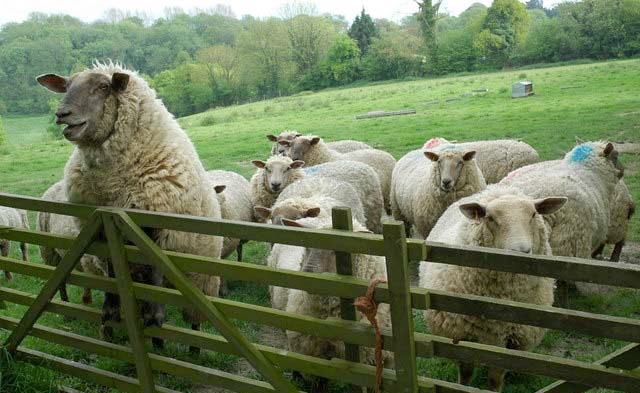
Three-quarters of farmers who attended lameness meetings across EBLEX’s 19 sheep focus farms plan to change their management practices as a result of what they learnt from the event.
The most popular management change was to treat lame sheep earlier (51%), followed by culling repeatedly-lame ewes (45%). The events also prompted attendees to question their use of foot trimming, with those that routinely trim feet being more likely to stop as a result of attending the events.
The lameness meetings were part of the EBLEX focus farm initiative, which involves a network of sheep farms around England and is funded by the Rural Development Programme for England (RDPE) Skills Framework. The first round of meetings attracted over 700 farmers and industry advisers to hear about the five-point lameness plan and see practical demonstrations on lesion identification and treatment.
Attendees at each event completed a quiz on lesion diagnosis, which showed the majority of farmers could recognise scald (80%) and footrot (67%). Contagious Ovine Digital Dermatitis (CODD), however, was less-easily recognised, with only 58% of those questioned identifying it correctly.
When asked about their management practices, 18% of respondents believed that more than 5% of their flock was lame at any one time, however only 4% of those questioned would use their vet to diagnose lameness. Routine foot trimming was common, despite being shown to be counter-productive in many cases, with 35% doing it once or twice a year and 8% doing it more than three times a year.
EBLEX senior regional manager Steve Dunkley said: “If the English sheep industry is to tackle its significant lameness problem, it’s essential that farmers know what they are treating, and treat accordingly, as mis-diagnosis can lead to prolonged lameness, extra costs and ineffective treatment.
“Farmers should use the vet to diagnose lesions if they have concerns or an ongoing issue that isn’t improving.”
A number of the focus farms carried out small-scale trials to monitor lame sheep that were treated in line with the latest thinking. The EBLEX BRP Focus Farm Bulletin includes a case study of one of those farms.
